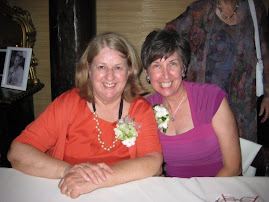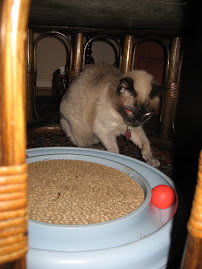
In a recent AARP Magazine article, Yakov Smirnof, comedian and writer, points out that in retirement “you are approaching a time in life when you can not only choose the games you wish to play but also write your own rules and be a winner every time.” (May-June, 2009, p. 18)
Wow, that’s a liberating thought, isn’t it? Life without rules. Do what you want. No more following directions and fulfilling everyone else’s expectations. For the majority of our lives, we have been following rules and fulfilling expectations that were set for us, first by our parents, then by our families, and then by our jobs. There didn’t seem to be much time for anything else. In fact, time was a most precious commodity and there was never enough to go around.
Do you know what a fuse box and retirement have in common? Let’s examine for a minute these two very different concepts. What is the purpose of a fuse box? With apologies to my electrician friends, in novice terms, let me just say that the fuse box brings power into your home and then distributes it to the various sites where it is needed. Wires connecting the fuse box lead directly to kitchen appliances, electronic equipment, lights, cooling and heating systems, among other things. Some appliances need more powerful fuses than others, and the electrician is the expert who selects the appropriate fuses and hooks up the wires as needed.
Think of yourself as a source of energy, similar to the panel of fuses in your house. For the past thirty (plus or minus) years that you have been working, you divided up your energy among the various demands of your life. If, like me, your priorities centered around family and work, the majority of your energy went toward satisfying the needs and demands of those two areas of your life. You as an individual were wired for certain behaviors and recurring tasks. Now, take away that job, take away those children who have probably moved out, and you are left with a very large source of energy that has nowhere to go. It’s just sitting there unused.
If this is the case, it would appear that a new retiree might need a little rewiring. Just as a brick and mortar building needs to be rewired periodically to update all of the electrical connections as a house is modernized, we often hear this word “rewiring” used to describe a person who is going through a major life change and who will need a whole new set of skills and renewed perspectives to cope with the future that he / she is facing.I like this metaphor to describe the changes that I have been experiencing during the past year. For the majority of my life, my priorities were family and work. The majority of my electrical circuits had their origins in the fuses governing these two areas of my life and provided the power for me to perform the functions needed to successfully cover those areas of my life. However, the hard-learned skill-sets, talents or modes of thinking that I have cultivated for 34 years and that earned me a certain degree of success and a reputation for reliability in my work may no longer be needed or even applicable for the decisions that I will be making today.
As a parent and an educator, there were many rules I had to live by. These rules determined to a large extent the way I was wired. They guided my choices and the way I carried out my responsibilities. Be strong. Be a good role model. Be fair. Be consistent. Be organized. Be patient. Be generous. Be knowledgeable. Use your time wisely. Be enthusiastic. Be creative. Be a good listener. Be a team player. Do your best.
At first, the thought of entering a realm of “no rules,” creates a sense of excitement and we think this thing called retirement should be a cake walk! If there are no rules, I can’t make any mistakes, right? Well, imagine a classroom teacher coming in on day one of school and announcing to her students that there will be no rules in this class this year. Can you imagine the chaos and the uncertainty?
In fact, being rewired for a system where there are no rules puts a greater responsibility on ourselves and makes us face our own set of values. All of a sudden, instead of living up to everyone else’s expectations for ourselves, we have only to live up to our own. But do we even know what they are?If never before, retirement is a time for a thorough re-examination of our own priorities. Retirement is a gift that we have earned. It is the gift of rest, recuperation, reflection and recreation. It is a time to explore, discover, listen, watch, and experiment. For me personally, I have asked myself things like--What makes me tick? Am I someone who needs constant interaction with other people? Or do I thrive on the quiet times sitting cozily on my sofa with my cat and dog nearby reading the latest selection for my book club or watching a classic movie on TCM? What will it take for me to feel good about myself today? What does it take for me to feel good about myself on any day? What are my own standards for happiness? For success? For fulfillment? Are there some areas of my life that have been left “in the dark” because of the responsibilities I had but that could still be there waiting to be brought into the light?
What about taking care of myself physically? Don’t I owe it to myself to stay healthy so that I won’t be a burden to my children or my siblings in later years? What about the greater role that I could be playing in my community? What skills do I have that might be helpful to someone else? What are my dreams? Do I have the drive and commitment I’ll need to attain those dreams?
What about you? Have you thought about rewiring for retirement? What will guide your thinking and your actions as you move forward into your sixties, seventies, eighties and beyond?
















